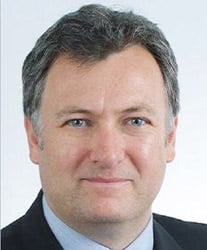OIL
One of the enduring features of oil markets is a tendency to over-analyse and interpret every word uttered by the various players, with the current debate over a mooted output freeze being the latest case in point.
 But perhaps it's time to halt the practice of both industry and media commentators to pontificate over what the leaders of oil producing countries meant when they speak, and focus on the actual words used.
But perhaps it's time to halt the practice of both industry and media commentators to pontificate over what the leaders of oil producing countries meant when they speak, and focus on the actual words used.
The latest shenanigans over whether the Organisation of the Petroleum Exporting Countries (OPEC) and other major suppliers such as Russia will limit their output has generated heaps of noise, but very little of substance.
Effectively, it's the views, and actions, of four major producers that will determine whether there is any success in limiting production.
They are Saudi Arabia, Russia, Iran and Iraq.
So, in an attempt to cut through the noise, it´s worth looking at exactly what the oil leaders of those countries have said recently, and take their words at face value instead of trying to work out what analysts and media think they were really trying to say.
Taking top exporter Saudi Arabia first, the most recent relevant comment came from Energy Minister Khalid al-Falih on Sept. 5 in remarks accompanying the announcement of a broad cooperation agreement with Russia.
"There is no need now to freeze production ... We have time to take this kind of decision," Falih said. "Freezing production is one of the preferred possibilities, but it does not have to happen specifically today."
That´s pretty clear. No freeze for now, but maybe at some time in the future.
If you have to place an interpretation on those words, the most simple and logical one would be that nothing will be decided at the meeting of oil producers in Algeria later this month, but something may at the OPEC meeting in November.
Moving to Russia, and Energy Minister Alexander Novak said on Sept. 5 that an output freeze would have helped the market rebalance and his country would join one if an agreement can be reached.
That´s also pretty clear, Russia would like a freeze, but everybody has to agree.
Novak also said that Iran should be allowed to reach the output level it enjoyed prior to Western sanctions against its nuclear programme, which were lifted earlier this year.
That position has been something the Iranians have been clear about too, and their most recent comments underline this.
Iran can raise its output to 4 million barrels per day (bpd) in the next two to three months, and is aiming for 5 million bpd in two to three years, Seyed Mohsen Ghamsari, the director for international affairs at the National Iranian Oil Company, said at the Argus Crude Forum in Singapore.
"We can increase crude production based on market requirement," Ghamsari said.
Taken at face value this means that Iran, whose output is about 3.8 million bpd currently, is expecting to increase its production and exports in coming months.
So, no freeze for Iran.
That leaves Iraq, and here the story is the same, higher output is expected in coming months.
"There will be a steady growth in production and exports next year," Falah Alamri, the head of Iraq´s State Oil Marketing Co. told Reuters on the sidelines of the Asia Pacific Petroleum Conference in Singapore.
While Alamri didn´t specify by how much he expected to raise exports, it´s safe to say that Iraq is not expecting to freeze output.
So, taking the words of the four major producers and putting them together and you end up with one saying they will supply as much oil as their customers need and that there is no need for a freeze now (Saudi Arabia), one saying a freeze would be nice (Russia) and two saying they plan to increase output and exports (Iran and Iraq).
Yet, despite these very clear statements, if you read the media, both traditional and social, and paged through various analyst reports, you would get the impression that a freeze is still very much on the cards.
This flies in the face of what the producers are actually saying, and in what they are doing as well, given OPEC actually raised output in August by 40,000 bpd from July, taking it to a record 33.5 million bpd.
Are the media and other commentators currently filling the role of unwitting boosters of the oil price by keeping the freeze issue front and centre of the current market debate? It certainly seems so.
The writer is a columnist for Reuters.